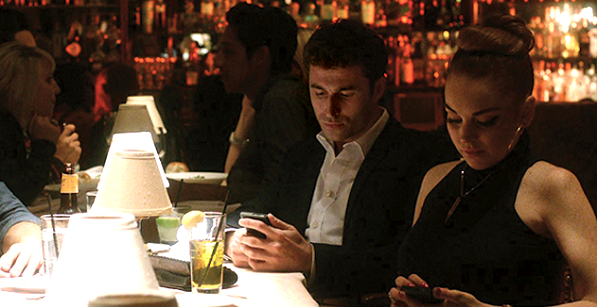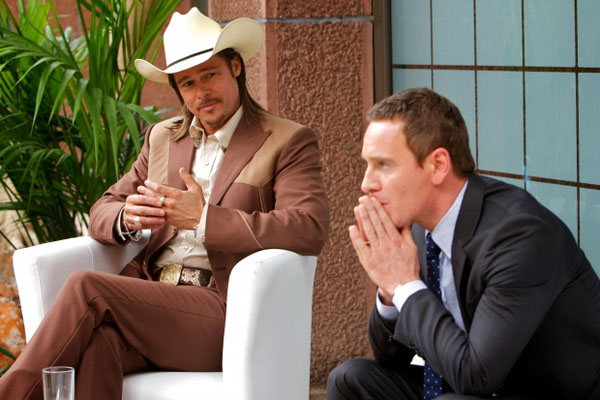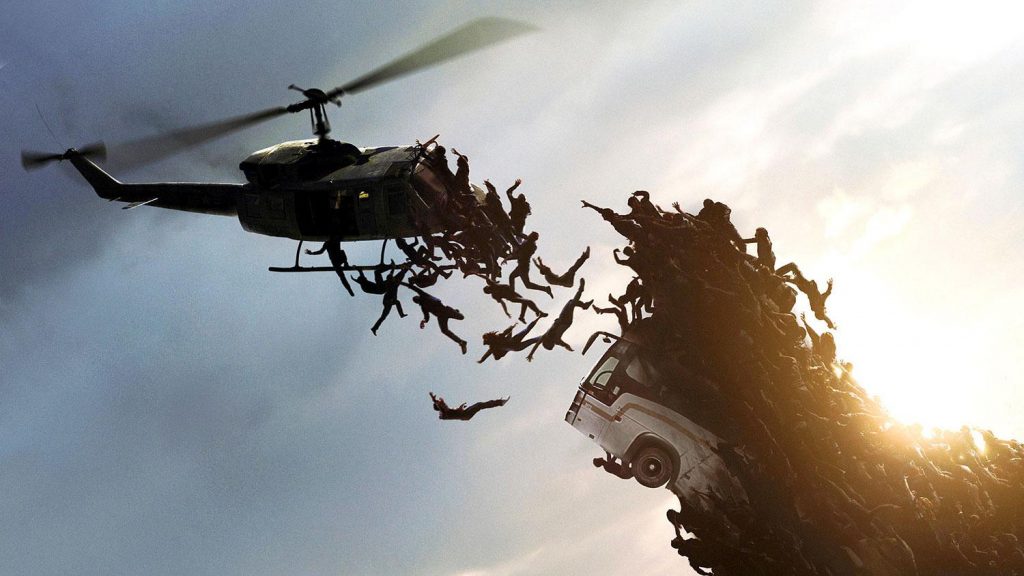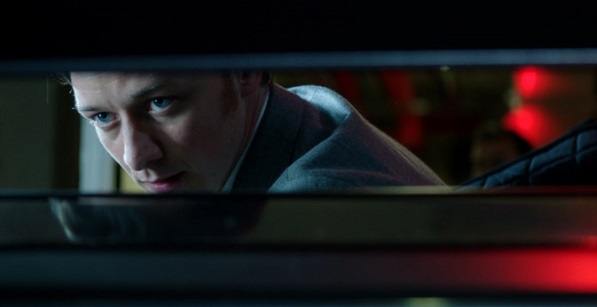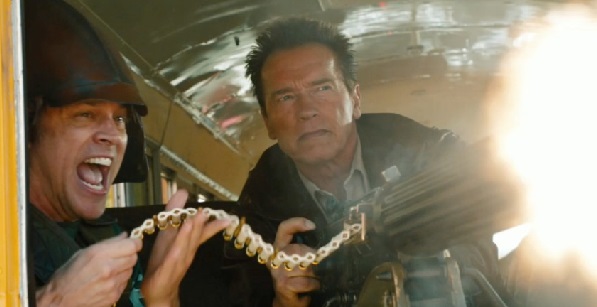Editor’s note: The month of December will feature thirty-one days of unique year-end lists from disparate voices all over the globe.
The furniture of contemporary film criticism—you know: micro-blogging platforms, social networks, studio-owned review aggregators, the overwhelming lot of it—lends itself a little too readily to instant and definitive appraisal. Twitter and the like hasn’t ruined traditional criticism, exactly, and in fact I’ve found it a rather seductive waste of time. But it’s certainly facilitated a certain erosion of standards. In the age of the rotten tomato and the widely seen festival retweet, the critic’s verdict has been reduced to a bite-sized yay/nay dichotomy, gradually eclipsing former niceties like analysis and elucidation. What’s important now, it seems, is snap judgement: before the credits are even finished rolling you’re asked to decided, with authority and certainty, whether the film you’ve just seen is a masterpiece or a disaster, or whatever extreme you can articulate in fewer than 140 characters.
I’m hardly above this tendency—over the past eleven months I think I’ve called at least two dozen movies far and away the best of the year, as my Twitter archive doubtless proves. It’s a reasonable impulse: after all, hyperbole is without a doubt the most appealing response of all time. But one of the unfortunate and perhaps unrecognized consequences of this sort of binary criticism is that a lot of perfectly interesting films fall through the gaps of taste’s extremes, resisting instant classification and floating off into the intellectual ether. Maybe it was easier, twenty years ago, to sit on a film for a while before determining and proudly disseminating its ultimate historical worth; you could, say, think about why you didn’t take to Blade Runner before happily coming around to it. That doesn’t happen so much now, at least not without a lot of hand-wringing and apologies and rhetorical contortions. We don’t really know how to deal with the muddled films, the ones we really like but maybe don’t love. If the only two categories at our disposal are “great” and “terrible,” we don’t really know what to do with interesting.
Well, we were invited, in this space, to come up with a year-end list that had a different focus than 2013’s very best films, and it seemed to me the perfect occasion to contend with precisely these experiences. And so it is that I’ve selected five films that, for whatever reason, struck me as deeply fascinating, likable, or otherwise of interest—five films that, I suspect relatedly, were widely disparaged by critics upon release. These are not films that will find their way into my Top Ten of the year; they’re not masterpieces of that kind. But in each case they offer something more than their reputations suggest, and I think it’s worth giving them their due. Their inclusion here is not consumer advocacy, though I would of course gladly recommend that you see them. The point is simply to highlight something other than greatness: something vaguer and more abstract, which I can only call “interest.” I’m glad to have the chance to do so.
Five Films I Found Myself Surprised to Admire Despite their Reputation or Pedigree
1. The Counselor (Ridley Scott)
It arrives in theaters under the aegis of Sir Ridley Scott, but the real author of The Counselor is its writer, Cormac McCarthy. His first screenplay for the silver screen, The Counselor is perhaps unsurprisingly among the most conspicuously literary films in recent memory, and much of its appeal derives from this quality. Though it seems to have alienated most who watched it — it currently holds a dismal 35% on Rotten Tomatoes — those familiar with the idiosyncrasies of McCarthy’s prose will quickly sink into its familiar rhythms, which take us through arch, almost surreally archaic dialogue (“A plague of pustulant boils upon all their scurvid asses”) and the kind of nihilistic worldview that renders every glimmer of hope a pipe dream. Staggering stuff, in other words, and I expect time will vindicate its peculiarity as simply misunderstood.
2. World War Z (Marc Forster)
I think the cool reception which greeted World War Z can be attributed at least in part to the mythology that plagued its production: reports of extensive rewrites, reshoots, and a totally reconceived last act (which transplanted the action from a zombie war in Russia to a small-scale set piece in Wales) prepared many for a disaster, which is precisely how discussions of the film were subsequently framed. As it happens, World War Z is indeed a mess—but what few seemed to discern was how deliberate that messiness actually feels. The film sustains an impression of being thrown into chaos, subsumed by a system so rapidly overrun by panic and discord that even the world’s most well-trained crisis expert has a hard time grasping the scope or severity of the situation. The truth is that this isn’t really a zombie movie at all: it’s about an epidemic, and that’s exactly how the action is framed.
3. Trance (Danny Boyle)
I caught up with Trance long after it had passed through the early-year hype cycle, moving from anticipated psychological thriller to widely panned absurdist farce in little under a month before fading into forgotten obscurity thereafter. I think I a lot of what frustrates about Trance has to do with the sensibility of its director, Danny Boyle: his instincts don’t cohere with what’s currently trendy, which makes a lot of his creative decisions—musical cues, garish filters, melodramatic gestures—seem silly rather than compelling or exciting. Though he’s found much success as the director of mainstream dramas like Slumdog Millionaire, Danny Boyle just isn’t thought of as cool–he’s too earnest, maybe, too soft. Trance isn’t much different from a playful and highly stylized thriller like Passion; the difference is that Brian De Palma is a lot more self-conscious of what it all means. Both are ridiculous, but it’s harder to appreciate a ridiculous film if it doesn’t seem aware of its own ridiculousness. Trance is like that, but I happen to be fine either way.
4. The Canyons (Paul Schrader)
A lot of critics, for whatever reason, treated The Canyons as if its badness were somehow self-evident—that you could look at its stilted performances, cheap digital cinematography, and contrived thriller plot and declare, unequivocally and inarguably, that it was an abject failure as art. But these qualities are utterly superficial, and the quality of a film has little to do, in the final estimation, with those kinds of standards. These elements are put to work in The Canyons as creative choices: they reflect the world of the film, with its vapidity and passive-aggression, and betray the subtle intelligence of the approach. Don’t get hung up on surfaces. There’s much going on here: the film has a lot to say about how a certain sort of Los Angeles millennial lives today, about long-decayed values and the desires that have supplanted them.
5. The Last Stand (Kim Jee-Woon)
Back at the beginning of the year, when I attended an early press screening for Kim Jee-Woon’s The Last Stand, I left the theater feeling confident that I’d just seen a great new action film—a uncommonly accomplished and muscular action film, possessed of a formal command that bordered on virtuosity. Alas, few critics seemed to agree. I’m still not sure why: as a comeback vehicle for the long-retired Arnold Schwarzenegger and the English-language debut for Korean director Kim (whose crime thriller A Bittersweet Life remains a favorite), The Last Stand provided every occasion for engagement and excitement as a film of its kind really could, charging through one well-devised set piece after another and making good use of its varied cast. A sort of jocular variation on High Noon, the film had a surprisingly light touch, too, and nearly a nine months later I’m not sure I’ve had a more purely enjoyable time at the movies all year. Give me this over the ponderous self-seriousness of a Christopher Nolan epic any day.
For the complete list of year-end lists on Keyframe, go to The Year in Film: 2013.
For the complete index of the films on these lists, go to 2013 Year in Review: Indexed.

